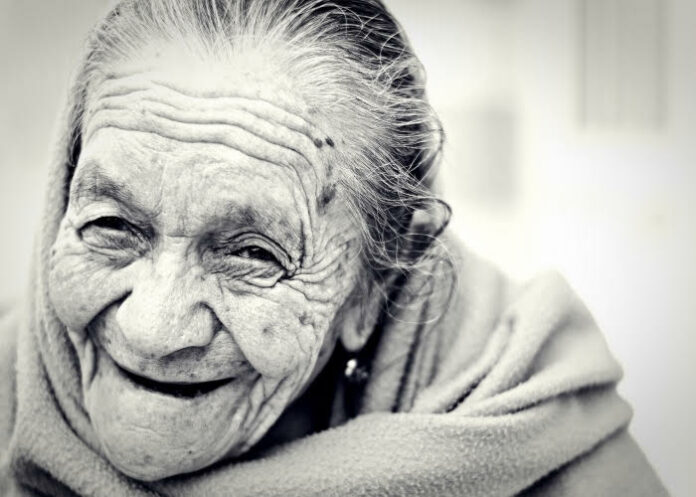Positive thought and optimism really do affect well-being, especially if you’re a woman. According to a recent study, higher levels of optimism were associated with longer lifespan and living beyond 90 in women across racial and ethnic groups, said the researchers at Harvard TH Chan School of Public Health.
“Although optimism itself may be affected by social structural factors, such as race and ethnicity, our research suggests that the benefits of optimism may hold across diverse groups,” said Hayami Koga, a PhD candidate in the Department of Social and Behavioral Sciences at Harvard Chan School and lead author of the study.
“Much previous work has focused on deficits or risk factors that increase the risks for diseases and premature death. Our findings suggest there’s value to focusing on positive psychological factors, like optimism, as possible new ways of promoting longevity and healthy aging across diverse groups.”
The study appeared in the Journal of the American Geriatrics Society.
In a previous study, the research group determined that optimism was linked to a longer lifespan and exceptional longevity, which was defined as living beyond 85. Because they had looked at mostly white populations in that previous study, Koga and her colleagues broadened the participant pool in the current study to include women from across racial and ethnic groups.
She said including diverse populations in research is important to public health because these groups have higher mortality rates than white populations, and there is limited research about them to help inform health policy decisions.
For this study, the researchers analysed data and survey responses from 159,255 participants in the Women’s Health Initiative, which included post-menopausal women in the US. The women enrolled at ages 50-79 from 1993 to 1998 and were followed for up to 26 years.
Of the participants, the 25% who were the most optimistic were likely to have a 5.4% longer lifespan and a 10% greater likelihood of living beyond 90 than the 25% who were the least optimistic. The researchers also found no interaction between optimism and any categories of race and ethnicity, and these trends held true after taking into account demographics, chronic conditions and depression.
Lifestyle factors, such as regular exercise and healthy eating, accounted for less than a quarter of the optimism-lifespan association, indicating that other factors may be at play.
Koga said that the study’s results could reframe how people view the decisions that affect their health.
“We tend to focus on the negative risk factors that affect our health,” she said. “It is also important to think about the positive resources, such as optimism, that could be beneficial to our health.”
Study details
Optimism, lifestyle, and longevity in a racially diverse cohort of women
Hayami Koga, Claudia Trudel‐Fitzgerald, Lewina Lee, Peter James, Candyce Kroenke, Lorena Garcia, Aladdin Shadyab, Elena Salmoirago‐Blotcher, JoAnn Manson, Francine Grodstein, Laura Kubzansky.
Published in the Journal of the American Geriatrics Society on 8 June 2022.
Abstract
Background
Research has suggested optimism is associated with healthy ageing and exceptional longevity, but most studies were conducted among non-Hispanic white populations. We examined associations of optimism to longevity across racial and ethnic groups and assessed healthy lifestyle as a possible mediating pathway.
Methods
Participants from the Women’s Health Initiative (N = 159,255) completed a validated measure of optimism and provided other demographic and health data at baseline. We evaluated associations of optimism with increments in lifespan using accelerated failure time models, and with likelihood of exceptional longevity (survival to age ≥90) using Poisson regression models. Causal mediation analysis explored whether lifestyle-related factors mediated optimism-lifespan associations.
Results
After covariate adjustment, the highest versus lowest optimism quartile was associated with 5.4% (95% confidence interval [CI] = 4.5, 6.4%) longer lifespan. Within racial and ethnic subgroups, these estimates were 5.1% (95%CI = 4.0, 6.1%) in non-Hispanic white, 7.6% (95%CI = 3.6, 11.7%) in Black, 5.4% (95%CI = −0.1, 11.2%) in Hispanic/Latina, and 1.5% (95% CI = −5.0, 8.5) in Asian women. A high proportion (53%) of the women achieved exceptional longevity. Participants in the highest versus lowest optimism quartile had greater likelihood of achieving exceptional longevity (e.g., full sample risk ratio = 1.1, 95%CI = 1.1, 1.1). Lifestyle mediated 24% of the optimism-lifespan association in the full sample, 25% in non-Hispanic white, 10% in black, 24% in Hispanic/Latina, and 43% in Asian women.
Conclusions
Higher optimism was associated with longer lifespan and a greater likelihood of achieving exceptional longevity overall and across racial and ethnic groups. The contribution of lifestyle to these associations was modest. Optimism may promote health and longevity in diverse racial and ethnic groups. Future research should investigate these associations in less long-lived populations.
AGS article – Optimism, lifestyle, and longevity in a racially diverse cohort of women (Open access)
See more from MedicalBrief archives:
10th World Happiness Report – Global sadness and benevolence both increase
50-year Swedish study’s clues to longevity
Good lifestyle choices improve healthy longevity by 7 years

